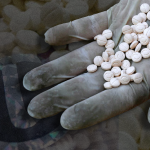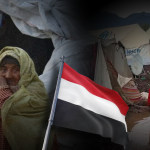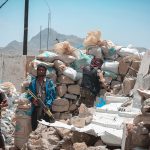The Growing threat of Hezbollah-Houthi Collaboration


Many are thwarted, but those that succeed can have disastrous repercussions. Strikes on the Khurais oil field and the Abqaiq production plant halted over half of the kingdom’s output in 2019, equating to 5% of world rates. Two persons were killed and seven others were injured in a missile strike by the Houthis on the southern city of Jizan on Saturday.
Brig Gen Turki Al Malki, spokesman for the Saudi-led coalition backing Yemen’s internationally recognized government, presented new evidence the day after the attack that Lebanon’s Hezbollah movement had sent experts to train Houthi fighters in the assembly and launch of ballistic missiles and drones. Despite a UN-mediated agreement for the group to transfer control of the city, a Hezbollah commander speaks to Abu Ali Al Hakim, the Houthi chief of intelligence, on the group’s effort to take the Red Sea port of Hodeidah, through where the majority of the country’s assistance shipments come.
Related Posts
This further worsens Yemen’s already difficult situation. The country’s security condition is already tumultuous after eight years of civil conflict. The precise extent of Iran’s backing for Houthi rebels, as well as understanding of the group’s ultimate aims and dedication to diplomatic de-escalation measures, are difficult to nail down.
The uncertainty provides a great environment for Hezbollah to take advantage of. Indeed, its actions in Yemen would not be the first time it has put Saudi security at jeopardy. Riyadh has banned certain Lebanese imports this year after they were used to transport the illicit narcotic Captagon. Hezbollah is reported to be a major player in the drug trade in the region. More restrictions were imposed in September after former Lebanese communications minister George Kordahi, a Hezbollah sympathizer, declared sympathy for the Houthis while criticizing the Saudi-led troops battling them.
The international world is acutely aware of the group’s growing regional danger. During a recent visit to Riyadh, French President Emmanuel Macron and Saudi Arabia’s Crown Prince Mohammed bin Salman spoke by phone with Lebanon’s Prime Minister Najib Mikati about implementing changes that are frequently opposed by Hezbollah. In November, Australia designated Hezbollah as a terrorist organization in its entirety. More international intervention is needed in Yemen to counter an asymmetric alliance of three of the region’s most destabilizing forces – the Houthis, Hezbollah, and Iran.
“Our objective is broader than these conflicts,” a Hezbollah commander tells Al Hakim, the Houthi intelligence leader, in a video aired at the press conference. We dropped everything and came to stand at your side. The Syrian conflict is coming to an end, and the majority of the mujahideen will go to Yemen.”
Syria’s civil conflict and the extremism it has spawned are a security and humanitarian calamity for the whole globe, not just Syria’s neighbors. Saudi Arabia is giving further indications that Yemen may be heading in the same direction. Its warnings must be taken seriously.


















